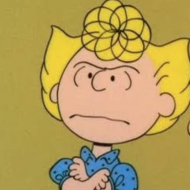“The Tragedy of Arthur,” a novel by Arthur Phillips, is a bold and tangled work in two acts. The first is a faux-memoir, in which Phillips’s father, also an Arthur Phillips, has discovered a previously unknown Shakespeare play, also called “The Tragedy of Arthur.” Arthur Sr.—who happens to be a convicted forger—enlists Phillips’s help in getting the work authenticated and published. The second act is the play itself: Phillips has included a full five-act “The Tragedy of Arthur,” warning, “The play is bad. It is bad. Don’t read it.”
What is true and what is not? Authenticity and deception are the themes of “The Tragedy of Arthur,” and if the reader is left a little scrambled—is Arthur Sr. pulling another con? Does the real-life Phillips also have a Shakespeare-loving twin sister named Dana?—Phillips considers his job well done. This week, Phillips kindly took the time to answer some of my questions on the book; an edited version of our exchange appears at newyorker.com.
